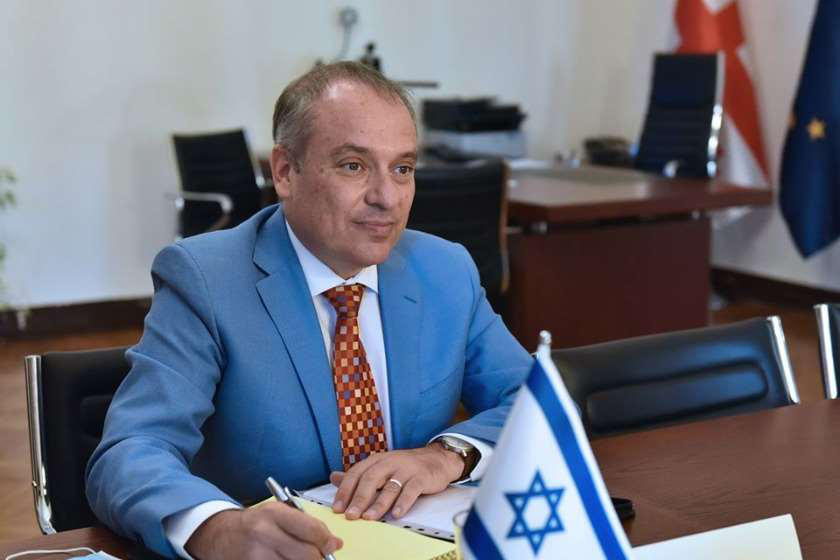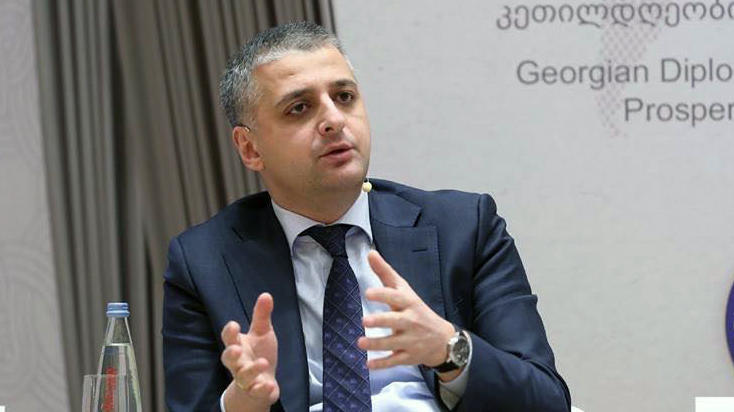Ran Gidor - Making Peace and Winning the War Against Coronavirus

Georgia is fortunate not only to enjoy peaceful relations with almost all of its neighbours, but also to have managed the COVID19 crisis better than most. However, Georgia, too, was also quick to recognize the potential for using the deadly virus as a diplomatic tool. Tbilisi offered Yerevan assistance back in June (despite a previous diplomatic spat), and generously opened up its medical facilities for residents of the breakaway enclaves of Abkhazia & South Ossetia.
It’s interesting to compare this to recent developments in the Middle East. The peace agreement between Israel, the UAE, and Bahrain is a historic moment that brings together some of the most prominent states in the Middle East for the good of humanity. Combining forces and finding common ground has never been more urgent than now, in the midst of a global pandemic, and the Abraham Accord is set to generate immediate results.
The leaders of Israel, the United States and the UAE hailed the agreement as an “historic diplomatic breakthrough that will advance peace in the Middle East”, “chart a new path”, and “unlock the great potential in the region”. Moreover, the Health Ministers of both Israel and the UAE have already agreed to cooperate on healthcare issues, particularly coronavirus, as well as to set up business delegations and a student exchange program.
In the first commercial agreement after Israel and the UAE announced the normalization of relations, an Emirati investment firm and Israeli tech company signed an agreement to jointly research and develop a coronavirus testing device that will diagnose the disease more quickly and precisely. The two countries have also committed to work together on medical research and pharmaceuticals, collaborating particularly in the development of treatments and vaccine trials for COVID-19. The same Emirati investment firm has further signed a memorandum of understanding with a leading Israeli hospital, setting up Israel as a new major destination for medical tourism from the UAE. Both countries have suffered under the ongoing coronavirus crisis, and it’s therefore fitting that the first field of cooperation be in healthcare.
Israel and the United Arab Emirates are both young countries that have managed to develop dynamic and thriving economies in just a few decades. Both are at the cutting-edge of innovation and technology and share in the same entrepreneurial spirit, and both will gain from the expansion of trade and commercial ties. The Israeli Ministry of Economy predicts that exports and investments between Israel and the UAE could soon reach some hundreds of millions of dollars worth per year. The fields of cyber security, energy, medicine, finance, communications, and agriculture are just some of the sectors expected to benefit in particular from the newfound expansion of trade and investment between Israel and the UAE.
These initiatives and collaborations represent just a drop in the ocean of what is to come in the normalization of relations between Israel, the UAE, and Bahrain. The citizens of all three countries will undoubtedly see their lives enriched as a result of this agreement, paving the way for increasingly more countries in the region to realize the vast potential that exists in making peace with Israel. The United States remains a central player in the region and a true ally of all sides, and played a key role in brokering this Accord.
The challenges we are facing today know no boundaries, as the situation in the Middle East – but also in the Caucasus demonstrates almost on a daily basis. It is, therefore, imperative that we combine our capabilities for the benefit of all of our citizens. We call on all those following this historic moment to voice their support for the agreement, and to encourage others to do the same.
